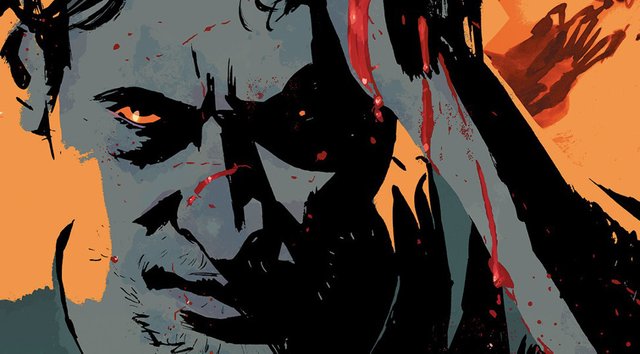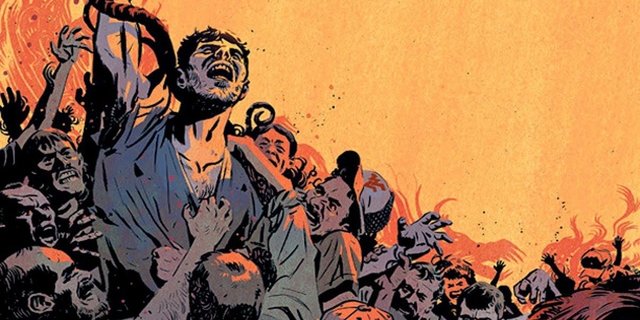Kirkman’s Outcast

By now, everybody knows Robert Kirkman for one thing: The Walking Dead. His post-apocalyptic drama is a legitimate phenomenon that has revived the zombie genre, spawning innumerable licensed merchandise, a well-received (although I have a feeling its days as one of the small screen’s top dogs are in between a rock and a hard place right now) TV show, another spin-off TV show that puts out original content, and even video games. Of course, that is not to mention the numerous others in any given medium that have tried to ride The Walking Dead’s coattails. Of course, I can imagine Kirkman is not complaining one bit when people think that The Walking Dead’s the only thing he has come up with in his nearly two decades in the mainstream American comic book industry. Hell, the worst he could do is cry in his speedos while eating a pork chop in his bed made of hundred dollar bills and dead hookers (oh, we all know it, Kirkman. We all do). Seriously, though, Robert Kirkman has more in his catalogue than his zombie drama. For one, there’s Battle Pope, another Image title of his that’s as the name says: it’s a book about the pope battling. But, of course, his latest offering is the Outcast franchise, which started no more than five years ago and was picked up for a TV adaptation even before the first issue came out in a move that would make Mark Millar green with envy. So much so, that I think the Outcast comic book series is actually the adaptation, not the other way around.

So, what is this series about? Well, unlike the Walking Dead, this one’s not a post-apocalyptic series. And, to me at least, that’s pretty much it. Like its more popular sibling, Outcast is set in rural America; it’s deals with the relationships of the characters with one another; and, like The Walking Dead, it’s plot moves as slow as turtle carrying a bag of rocks. That’s not to say The Walking Dead isn’t enjoyable, however: it’s just not the kind of series that’s made for monthly publication. Series like the Walking Dead are the kind that you read per volume, in the various collected editions and omnibuses that are out there. The reason I’m saying this is because it applies even more so for Outcast. Honestly, I find Outcast’s comic series to be excruciatingly slow in spite of the fact that it pretty much does what The Walking Dead has been doing for so long. I’m betting it’s because my expectations were set when Kirkman advertised it as an epic instead of a drama, which I thought would involve quicker reveals, more kinetic scenes, and such.

As of now, I’ve actually dropped reading Outcast and watching it on TV. Do I find it awful, though? Not at all. I just think that I’ve had enough of series that’s given in to long set-ups, no matter how satisfying the payoff might be. All in all, though, you should watch the show or read the series (the trades, to be exact) if you’re still into that kind of stuff.